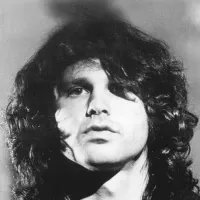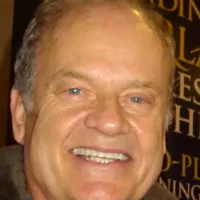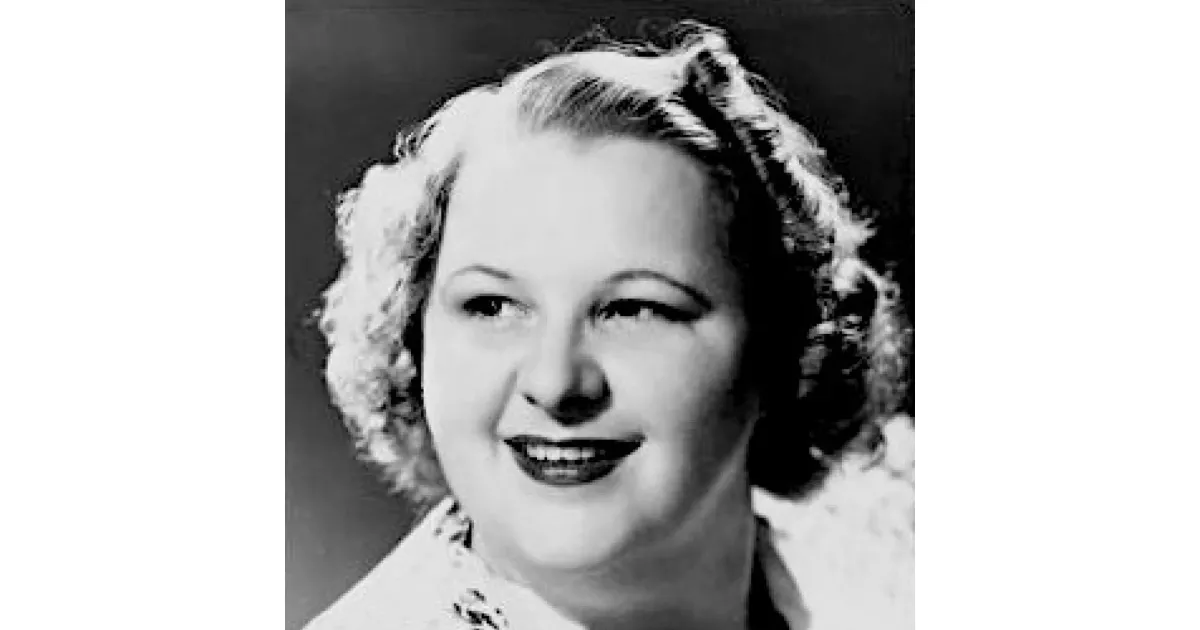Kathryn Elizabeth Smith, an acclaimed American contralto, earned the moniker "The First Lady of Radio" for her influential presence in the medium. Her powerful renditions of patriotic anthems like "God Bless America" and "When the Moon Comes over the Mountain" resonated deeply with audiences, particularly during World War II, solidifying her status as "The Songbird of the South." Smith's legacy rests on her emotive vocal abilities and the enduring popularity of her musical contributions.
May 1, 1907: Birth of Kate Smith
Kathryn Elizabeth Smith, widely recognized as Kate Smith, was born on May 1, 1907.
1924: Kate Smith Attends Business High School
Kate Smith attended Business High School in Washington D.C., which is now known as Theodore Roosevelt High School, likely graduating in 1924.
1925: Kate Smith Attends Nursing School
Between 1924 and 1925, urged by her father, Kate Smith attended the George Washington University School for Nursing for nine months before leaving to pursue a career in show business.
August 29, 1926: Honeymoon Lane Premiere
The revue "Honeymoon Lane", featuring a young Kate Smith, opened in Atlantic City, New Jersey on August 29, 1926, before moving to Broadway a month later.
October 28, 1926: First Recordings with Columbia
Although her first recording sessions were with Victor, Kate Smith's first issued recordings were released on Columbia label on October 28, 1926.
October 31, 1926: New York Times Review
On October 31, 1926, The New York Times published a review of "Honeymoon Lane", referring to Kate Smith as a "Sophie Tucker Rival" and commenting on her size and singing style.
May 1927: Early Recordings with Columbia
Kate Smith continued to record a few more records for Columbia through May 1927.
1929: Recordings Under Pseudonyms
Between 1929 and 1931, Kate Smith recorded for Columbia's budget labels Harmony, Diva, and Velvet Tone, often using pseudonyms.
March 3, 1930: George White's Flying High Premiere
Kate Smith took on the role of Pansy Sparks in "George White's Flying High", which premiered at Hurtig & Seamon's New Burlesque Theater (later the Apollo Theater) on March 3, 1930, and ran for 122 performances.
1930: Collaboration with Ted Collins
Kate Smith's musical career took a significant turn in 1930 when she began working with Columbia Records A&R executive Ted Collins, who became her long-time manager.
1931: Smith Records Controversial Songs
Kate Smith recorded the songs "That's Why Darkies Were Born" and "Pickaninny Heaven" in 1931, which later sparked controversy and debate regarding their racial connotations.
1931: End of Early Recording Period
Kate Smith's period of recording for Columbia's budget labels ended in 1931.
1931: Kate Smith Sings and Kate Smith and Her Swanee Music
Kate Smith's radio career flourished with the launch of her twice-weekly NBC series "Kate Smith Sings", which was quickly expanded to six shows a week. She followed this with the CBS series "Kate Smith and Her Swanee Music", sponsored by La Palina Cigars, from 1931 to 1933.
1931: Radio Debut and "Dream a Little Dream of Me"
With the help of Ted Collins, Kate Smith made her radio debut in 1931 and performed "Dream a Little Dream of Me".
1932: Hello, Everybody!
Kate Smith appeared in the film "Hello, Everybody!" alongside Randolph Scott and Sally Blane in 1932.
1936: The Kate Smith A&P Bandwagon
Kate Smith's CBS series "The Kate Smith A&P Bandwagon" ran from 1936 to 1937.
1937: The Kate Smith Hour Premiere
The premiere of "The Kate Smith Hour" took place in 1937, a leading radio variety show that ran for eight years.
1938: Publication of Autobiography
Kate Smith published her autobiography titled "Living in a Great Big Way" in 1938.
June 8, 1939: Command Performance for Royalty
Kate Smith gave a command performance for King George VI and Queen Elizabeth at the White House on June 8, 1939.
1939: Patricia Castledine's Birth
Patricia Castledine, who would later become Kate Smith's live-in nurse, was born in 1939.
1940: Release of "The Woodpecker Song" and "The Last Time I Saw Paris"
Kate Smith released two of her biggest hits in 1940: "The Woodpecker Song" and "The Last Time I Saw Paris".
1940: The Aldrich Family Spin-off
Sketches on "The Kate Smith Hour" based on the Broadway production of the same name led to the creation of the hit series "The Aldrich Family" in 1940.
1941: Release of "Rose O'Day"
Kate Smith's hit song "Rose O'Day" was released in 1941 and became her first record to sell over one million copies, earning her a gold disc from the RIAA.
1942: Release of "The White Cliffs of Dover" and "I Don't Want to Walk Without You"
1942 saw the release of two more of Kate Smith's popular songs: "The White Cliffs of Dover" and "I Don't Want to Walk Without You".
1942: Henry Morgan Parodies Kate Smith
Comedian Henry Morgan parodied Kate Smith's cheerful radio sign-on when he debuted his own show in 1942, using the phrase, "Good evening, anybody, here's Morgan."
1943: This Is the Army and "God Bless America"
In 1943, Kate Smith appeared in the wartime film "This Is the Army", performing "God Bless America", a song that would become synonymous with her career.
May 14, 1944: Little Johnny Appleseed
Kate Smith took on a dramatic role in "Little Johnny Appleseed" on Silver Theater on May 14, 1944.
1944: Release of "There Goes That Song Again"
Kate Smith's hit "There Goes That Song Again" was released in 1944.
1945: End of The Kate Smith Hour
After an eight-year run, "The Kate Smith Hour" came to an end in 1945.
1945: Smith Advocates for Racial Tolerance
Kate Smith used her platform on CBS Radio in 1945 to advocate for racial tolerance. In her address, she condemned race hatred, social prejudices, and religious bigotry, calling them "diseases that eat away the fibers of peace." She emphasized the importance of tolerance for achieving peace.
1946: Viva America
In 1946, Kate Smith and actor Pat O'Brien collaborated on the CBS radio program "Viva America", supporting America's cultural diplomacy initiatives in South America.
1946: Release of "Seems Like Old Times"
Kate Smith released the song "Seems Like Old Times" in 1946.
1947: Release of "Now Is the Hour"
In 1947, Kate Smith released the song "Now Is the Hour".
1950: The Kate Smith Hour and The Kate Smith Evening Hour Premieres
Kate Smith's television career took off in the early 1950s with two concurrent programs: "The Kate Smith Hour" on NBC Television, which ran from 1950 to 1954, and the weekly "The Kate Smith Evening Hour."
1953: Kate Smith Steps Down as Host
Kate Smith stepped down as host of "The Kate Smith Hour" in 1953, though the show continued until the following year.
1954: End of The Kate Smith Hour
After a successful run, "The Kate Smith Hour" concluded in 1954.
July 18, 1960: The Kate Smith Show Concludes
On July 18, 1960, Kate Smith's variety program, "The Kate Smith Show," concluded its run on CBS Television.
1963: Signing with RCA Victor
Kate Smith signed a contract with RCA Victor in 1963, leading to the recording of multiple successful albums, some of which charted on the Billboard Hot 200.
1965: Conversion to Catholicism
After attending services at a Catholic parish for 25 years, Kate Smith officially converted to Roman Catholicism in 1965.
October 2, 1966: Performance on "Sunday Night at the London Palladium"
Kate Smith made a special appearance on the British television program "Sunday Night at the London Palladium" on October 2, 1966.
July 1967: "Anyone Can Move a Mountain" Charts
In July 1967, Kate Smith's single, "Anyone Can Move a Mountain," reached number 30 on Billboard's Easy Listening Hits chart.
December 11, 1969: Smith's "God Bless America" Debuts at Flyers Game
On December 11, 1969, the Philadelphia Flyers ice hockey team opted to play Kate Smith's version of "God Bless America" instead of the "Star-Spangled Banner" before their game. The decision, made by the team's public address announcer, was influenced by the audience's lack of attention to the national anthem due to the ongoing Vietnam War. The crowd responded favorably to Smith's rendition, and the Flyers won the game.
1969: Concert Demonstration Against Indecency
In 1969, following Jim Morrison's arrest for indecent exposure, Kate Smith participated in a concert demonstration against indecency alongside The Lettermen, Anita Bryant, and Jackie Gleason. Their performance was commended by President Richard Nixon.
October 11, 1973: Surprise Performance at Flyers' Home Opener
Kate Smith made a surprise appearance at the Philadelphia Flyers' home opener against the Toronto Maple Leafs on October 11, 1973, performing "God Bless America" live to an enthusiastic reception. The Flyers won the game 2-0.
May 19, 1974: Performance at Stanley Cup Finals
Kate Smith performed "God Bless America" live before game 6 of the Stanley Cup Finals between the Philadelphia Flyers and the Boston Bruins on May 19, 1974. The Flyers won the game and ultimately the Stanley Cup.
June 1974: "Smile, Smile, Smile" Charts
Kate Smith's song "Smile, Smile, Smile" was released as a one-shot single and peaked at number 42 on Billboard's Easy Listening chart in June 1974, marking her last recording.
May 13, 1975: Performance at Flyers' Home Game
Kate Smith performed live at the Philadelphia Flyers' home game on May 13, 1975, before Game 7 of the Stanley Cup semifinals against the New York Islanders. The Flyers won 4-1.
May 16, 1976: Performance at Stanley Cup Finals
Kate Smith made one of her final public appearances before Game 4 of the Stanley Cup Finals on May 16, 1976, when the Flyers played against the Montreal Canadiens. The Flyers lost the game 5-3.
1976: Grand Marshal of the Tournament of Roses Parade
Kate Smith served as the grand marshal of the 1976 Tournament of Roses Parade in Pasadena, California. She also sang "God Bless America" and the National Anthem before the Rose Bowl game, where UCLA defeated Ohio State.
1976: Diabetic Coma and Brain Damage
Kate Smith slipped into a diabetic coma in 1976, which resulted in brain damage. This event marked a turning point in her health.
1979: Relocation to Raleigh
With assistance from her family, Kate Smith moved to Raleigh in 1979 following health complications.
October 26, 1982: Presidential Medal of Freedom Award
Kate Smith received the Presidential Medal of Freedom, the highest civilian honor in the United States, from President Ronald Reagan on October 26, 1982.
May 23, 1985: Final Public Performance
On May 23, 1985, Kate Smith made her last public performance before Game 2 of the Stanley Cup Finals, where the Flyers lost to the Edmonton Oilers 3-1. The Oilers ultimately won the series.
January 1986: Leg Amputation
Due to complications from diabetes, Kate Smith had her right leg amputated in January 1986.
June 17, 1986: Death of Kate Smith
American contralto Kate Smith passed away on June 17, 1986.
November 14, 1987: Private Burial of Kate Smith
Following a year-long dispute over her burial wishes, Kate Smith's private burial service took place on November 14, 1987 at St. Agnes Cemetery in Lake Placid.
1987: Erection of Smith Statue
In 1987, the Philadelphia Flyers erected a statue of Kate Smith outside the Spectrum, the team's arena at the time, in her honor.
1999: Posthumous Induction into the Radio Hall of Fame
Kate Smith was posthumously inducted into the Radio Hall of Fame in 1999, recognizing her significant contributions to the medium.
2001: Yankees Begin Playing Smith's "God Bless America"
In 2001, the New York Yankees began playing Kate Smith's rendition of "God Bless America" during the seventh-inning stretch of their home games.
2009: Induction into the North Carolina Music Hall of Fame
In 2009, Kate Smith was recognized for her contributions to music with an induction into the North Carolina Music Hall of Fame.
2010: Commemorative Stamp Release
The U.S. Postal Service issued a commemorative stamp in 2010, honoring Kate Smith. The stamp featured artwork based on a 1960s photograph of Smith, originally used for the cover of the CD "Kate Smith: The Songbird of the South."
April 20, 2016: Flyers' Record with Smith's "God Bless America"
As of April 20, 2016, the Philadelphia Flyers held a record of 100 wins, 29 losses, and 5 ties when "God Bless America" was played or sung by Kate Smith.
April 2019: Yankees Stop Playing Smith's Rendition
The New York Yankees ceased playing Kate Smith's rendition of "God Bless America" during the seventh-inning stretch of their home games in April 2019 due to controversy surrounding her past recordings.
April 2019: Removal of Smith's Statue
The Philadelphia Flyers removed a statue of Kate Smith that stood outside their arena in April 2019. The decision came amidst criticism of lyrics in some of her earlier songs that were seen as racist.
April 21, 2019: Flyers Remove Smith's Statue
On April 21, 2019, the Philadelphia Flyers removed a statue of Kate Smith that stood outside their arena. This action was taken following controversy over Smith's 1931 recordings of "That's Why Darkies Were Born" and "Pickaninny Heaven," which were deemed racially insensitive.
2021: Patricia Castledine's Death
Patricia Castledine, Kate Smith's former live-in nurse and the president of the Kate Smith Fan Club, passed away in 2021.
2023: Kate Smith's War Bond Contributions
Kate Smith's efforts during World War II, including her marathon broadcasts, helped raise over $600 million (equivalent to $12.4 billion in 2023) in war bonds, exceeding any other entertainer's contributions to the United States' war effort.
Mentioned in this timeline

The White House located at Pennsylvania Avenue NW in Washington...
CBS Broadcasting Inc CBS is a prominent American commercial broadcast...
California is a U S state on the Pacific Coast...

Jim Morrison was the lead singer and lyricist of the...
The National Broadcasting Company NBC is a major American commercial...

George Washington a Founding Father served as the first U...
Trending

2 months ago Lake Tahoe: Service Roads Closure, Heavenly Village Ice Rink Opens with Bear!

Kliff Kingsbury is an American football coach currently serving as the offensive coordinator for the Washington Commanders in the NFL...
The Topps Company is an American manufacturer of trading cards and collectibles most notably known for its baseball and other...
5 months ago Pope Leo XIV's First 100 Days: Reflections, Reactions, and US-Born Leadership

7 months ago Jasmine Crockett: Republicans' Shocking Messages Fuel Trump Concerns, Acosta's Jailed Fears.

Jim Jordan is a Republican politician representing Ohio's th congressional district in the U S House of Representatives since He...
Popular

Stranger Things created by the Duffer Brothers is a popular...

XXXTentacion born Jahseh Dwayne Ricardo Onfroy was a controversial yet...

Kelsey Grammer is an accomplished American actor producer and singer...

Candace Owens is an American conservative political commentator and author...

Melania Trump a Slovenian-American former model has served as First...

Bernie Sanders is a prominent American politician currently serving as...
